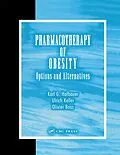Primarily intended for physicians and health care professionals who are treating obese patients, this book explores current and future options for drug treatment of obesity puts them into perspective against available alternative treatments. Distinguished scientists and clinical investigators provide reviews of each individual topic, covering a wide range of subjects from pathophysiology of obesity to the benefits of weight loss. The core sections on pharmacotherapy deal with currently available drugs and drugs in pre-clinical development. These sections are complemented with sections on non-drug treatment and general therapeutic aspects. This design provides an integrated view of therapeutic approaches to the treatment of obesity and its associated syndromes.
Autorentext
Karl G. Hofbauer holds the Chair for Applied Pharmacology at the Medical Faculty of the University of Basel. He received his M.D. degree from the University of Vienna, Austria, and specialized in experimental pharmacology at the University of Heidelberg, Germany He spent more than 20 years in preclinical research at Ciba, later Novartis, in Basel, Switzerland, where he became interested in the search for antiobesity drugs. He has continued to work on this subject after moving back to academia. Ulrich Keller received his training in endocrinology and internal medicine in Zurich; Basel; Nashville, Tennessee; and Rochester, Minnesota. He is currently head of the division of endocrinology, diabetes, and clinical nutrition; since 1988, he has held the position of professor of medicine at the University of Basel. His main clinical activities are diabetology (type 1 and type 2 diabetes) and obesity and lipid disorders. This can only be achieved in close collaboration with other services of the hospital (diabetes and nutrition counseling; nephrology; gynecology; ophthalmology; cardiology; and others). Interdisciplinary consultations are specifically devoted to the assessment of morbidly obese subjects. Olivier Boss received his training in medical biochemistry, exercise physiology, and endocrinology of energy metabolism from the University of Geneva (Switzerland) and Harvard Medical School and Beth Israel Deaconess Medical Center (Boston, Massachusetts).
Inhalt
Part I Pathophysiology of Obesity, 1 Energy Homeostasis, 2 The Pathophysiology of Appetite Control, 3 Genetics of Obesity, 4 Antipsychotic Drugs, Weight Gain, and Diabetes, Part II General Therapeutic Aspects, 5 Obesity and Associated Complications, 6 Psychosocial Aspects of Obesity, 7 Basic Considerations and Guidelines for Treatment, Part III Benefits of Weight Loss, 8 Weight Loss and Cardiovascular Risk Factors, 9 Weight Loss and Associated Diseases, 10 Weight Loss and Metabolic Diseases, Part IV Drugs on the Market, 11 Orlistat, 12 Sibutramine, 13 Noradrenergic, Serotonergic, Antiepileptic, and Herbal Drugs, 14 Adverse Effects and Drug-Drug Interactions, Part V Drugs in Research and Development, 15 Central Targets for Antiobesity Drugs, 16 Leptin and Other Appetite Suppressants, 17 Peripheral Targets for Antiobesity Drugs, 18 Targeting Thermogenesis in the Development of Antiobesity Drugs, Part VI Treatment Alternatives, 19 Diet, Physical Activity, and Behavior, 20 Dietary Supplements and Herbal Preparations, 21 Surgical Treatment of Obesity, 22 Efficacy of Different Antiobesity Interventions, 23 Integrated Approach to Treatment and Prevention, Part VII Appendix, Perspectives and Outlook, Index
